#Drag City
Audio
Joanna Newsom’s Ys
#joanna newsom#ys#drag city#music#folk#pop#chamber folk#baroque pop#chamber pop#freak folk#alternative pop#orchestral#bluegrass#avant garde#bandcamp
15 notes
·
View notes
Text
Ty Segall — Three Bells (Drag City)
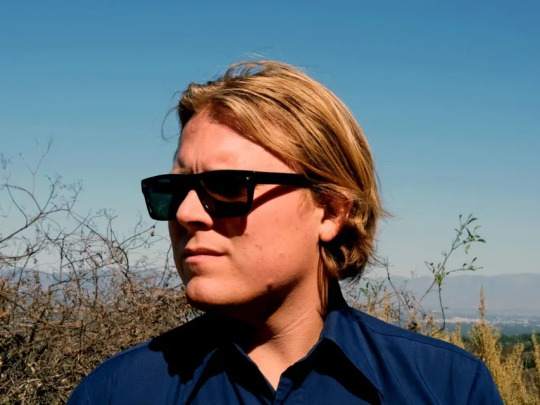
Ty Segall has never been shy about his affinity for King Crimson . His heaviest band, Fuzz, covered “21st Century Schizoid Man” a decade ago, amplifying its stately complexities to an airport tarmac roar . His latest album, the double LP Three Bells, hews to a quieter folky sound, but you can hear a homage to the prog godfathers in its tricky chord changes and multi-parted compositions.
Consider, for instance, the shimmering jangle that kicks off the title track, Segall warbling plaintively over a mesh of folk-leaning guitar play . But the melody takes a half-step, jazzy turn, breaking out of what you expect into jazzier, more free form trajectories, but that’s just a taste. A mid-cut break slips further out into the stratosphere, quickening the pace, fracturing the vocals and layering heavy metal guitars with pristine folk-derived harmonies . It’ll remind you not just of Crimson, but related bands and their prog rock opuses—Yes’ “Roundabout” or Emerson Lake & Palmer’s “Lucky Man.”
That’s quite a turnaround for an artist who cut his teeth on brief, incendiary garage stomps like “The Drag” but Segall’s influences have always been broader and deeper than skeptics acknowledge . He’s as deep into kraut rock as he is in mod 1960s psych, as committed to arena-style rock and metal as to Cavestomp primitives . His last few albums have thrived under limitations—no guitars for First Taste, a fixation on Harmonizers for Harmonizer, a home-taper’s acoustic fuzz for Hello, Hi . Three Bells is not one of these conceptually defined albums . Recorded mostly solo, with Segall on guitar and drums, it pushes classic guitar rock into complicated corners, with choral motets sidling up to blistering guitar solos, noodle electric keyboard textures glittering atop blasts of pared down percussion .
Segall brought in his wife Denée to assist on five of these tracks, including the fuzz-bombed highlight “Eggman” where multiple guitars saw in from all angles as Segall chants in monotone . It’s hard to overstate how bouncy and marvelous the drumbeat is or how infectious this brutally stripped back song is . And yet even this one disappears into a vortex, swamped by noise like the end of “A Day in the Life.”
Emmett Kelley also played bass on a few . You can hear Kelley bobbing in and around the chilled, fusion jazz drum break of “Denée,” holding down an increasingly free-form exploration of rhythmic transport . Or grounding the swaggering Motown pop string section in the sweeping “My Room.”
The most entangled and intricate cut on this disc, though, is likely “Move” the one track credited not just to Segall but the whole Ty Segall Band (Ben Boye, Mikal Cronin, Emmett Kelly, Charles Moothart and Segall himself.) Denée chants in a cool deadpan, as all manner of guitar-based ideas zing off in the background . The tempo changes—as well as the temperature, with metal and rock flaring out of krautish repetition—but the song bangs on . It’s complicated but in no way unreadable, a pleasure for all its multiplicity.
Jennifer Kelly
#ty segall#three bells#drag city#jennifer kelly#albumreview#dusted magazine#rock#garage#prog#king crimson
7 notes
·
View notes
Text
guardian angels, pearls before swine (1968).
you're trapped in a world of angels who no longer care
in the space where his hand was my hand is
reaching out for you there
love is the weapon left after the fall
it may not seem like much, but, girl, that's all that there is
girl, i love you
#pearls before swine#balaklava#esp disk#1968#drag city#psych rock#folk rock#proto-twee#baroque pop#tape manipulation#sing a song#tom rapp
5 notes
·
View notes
Text
4/5/24.
Mayo Thompson is one of those names that you know you know. Sure, I've heard of Mayo Thompson, and it seems like I've heard his work, but I certainly never heard "Corky's Debt To His Father".
Thompson is known for his work in The Red Krayola his work experienced a bit of a renaissance in the 1990s when several musicians in the Chicago music scene - Dan Koretzky, John McEntire, David Grubbs, George Hurley and Jim O'Rourke among many others. Drag City put out new releases from The Red Krayloa and also reissued this amazing LP from 1969.
Many people mention Bob Dylan when discussing "Corky's Debt To His Father". I find that it reminds me more of Ed Askew and Gram Parsons. Sometimes, I get a Ray Davies vibe too.
Thompson has worked with many bands over his career - Pere Ubu, The Chills and Felt are but three. But this album really does have a late 60s psych folk vibe. Thompson currently lives in California.
#Mayo Thompson#The Red Krayola#Drag City#Bob Dylan#Ed Askew#Gram Parsons#The Chills#Felt#Pere Ubu#Ray Davies
4 notes
·
View notes
Text
#799 - Espers II - Espers
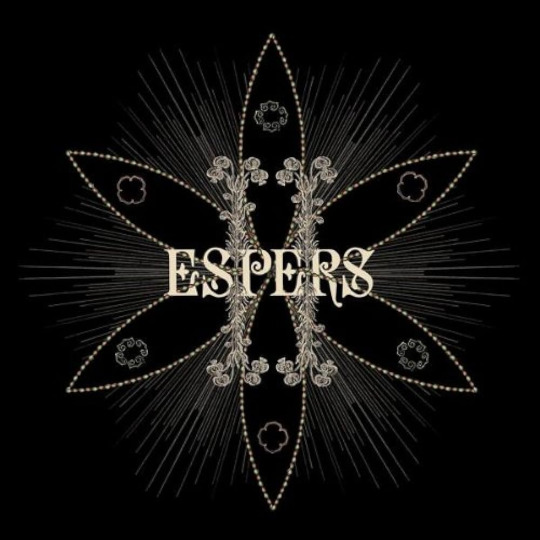
Liked this one a little more than their first crack, but still not enough to keep.
51/100
2 notes
·
View notes
Photo
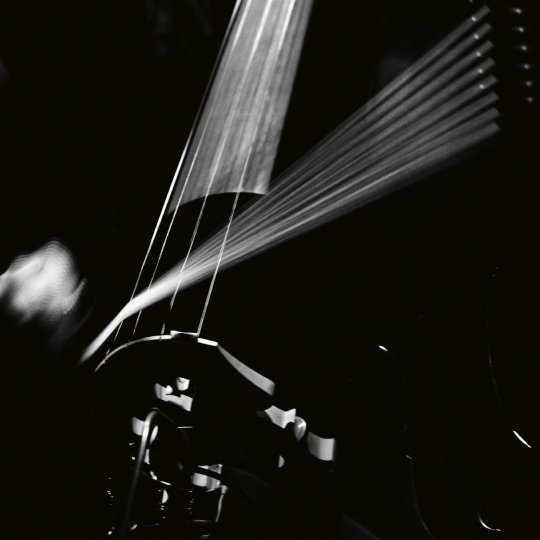
Arnold Dreyblatt - Resolve
Drag City
2023
10 notes
·
View notes
Text
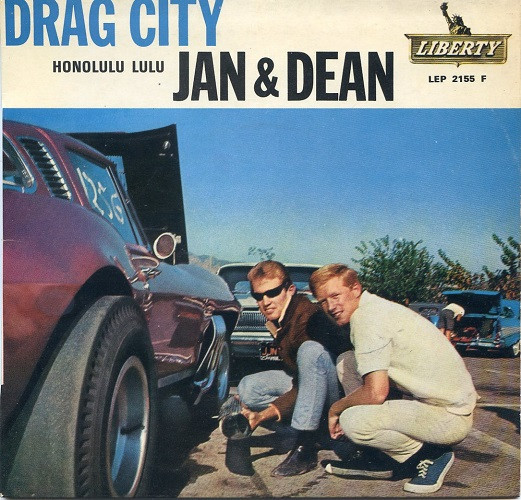
youtube
92. Drag City by Jan and Dean debuted Dec 63 and peaked at number 10, scoring 808 points.
Jan and Dean met in southern California and had 26 chart entries 1958-66. Six made the top ten.
3 notes
·
View notes
Text



Six Organs of Admittance - The Mission
video by Elisa Ambrogio
2 notes
·
View notes
Text
92: Aquariana // Aquariana
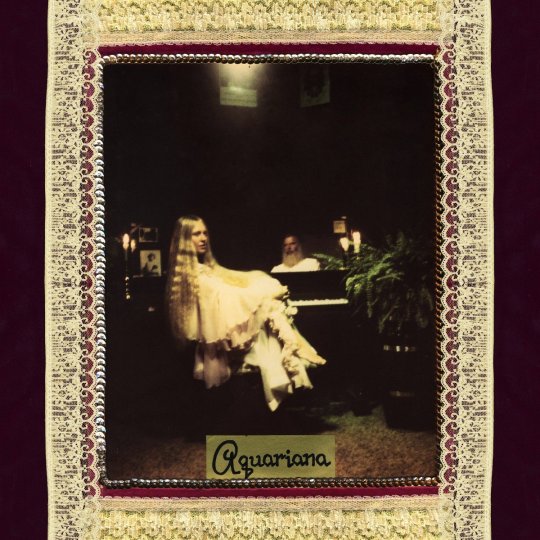
Aquariana
Aquariana
2013, Drag City (Website)
The Source Family were one of the more successful new religions (read: cults) operating in Southern California during the early 1970s. Founded by Father Yod (pronounced “Yoad”; né Jim Baker), a towering, bearded figure with a few alleged murders (via karate chop!) and bank robberies under his robes, the Source Family operated a popular health food restaurant in L.A. and cut dozens of brainstewing psych rock records that have become holy grails to men who physically resemble late period Jerry Garcia. Yod assigned one of his 13 wives (Isis Aquarian, née Charlene Peters) to document the cult’s journey over the years, resulting in an incredible trove of video recordings, some of which were used to assemble 2012’s The Source Family documentary. The footage, much of it eerie and gauzily beautiful, gives us a good idea of what day-to-day life in the Family was like, from its origins to Yod’s corporeal demise in Hawaii following a hang-gliding accident (!).
youtube
The Source Family were as close to a prototypical cult of the era as you can get: white robes, buffet approach to Eastern and Western spiritual concepts, illiberal attitudes toward “personal possessions,” semi-involuntary polygamy, institutionalized drug use, etc. If you’ve ever listened to recordings of the sermons of Jim Jones or David Berg, Baker’s hep gibberish will sound strikingly familiar, and indeed, the Source Family followed the standard trajectory—from monogamy to a form of free love that mostly allowed the leader to fuck all the hot girls; from soft notions about kindness and peace to dark mutterings about an imminent apocalypse; from vegetarianism to moral loopholes that sanctioned the killing of dangerous outsiders. The Source Family never went the way of the Peoples Temple because, when faced with a mounting crisis (the cult’s disastrous move to Hawaii), Baker decided to disclaim his godhood instead of doubling down on it. No one knows why he eventually told his followers he was only a man, but I have a hunch: he wasn’t a sawed-off little gnome, and he wasn’t crazy. Unlike his murderous peers, Baker didn’t have much to overcompensate for; he was a huge, built guy who didn’t need a cult to get laid, impose his will, or feel important (though he got off on all of the above). In the end, no one died, and so it feels a little less vulturine to nibble at this particular cult’s artistic output than it does, say, the Manson Family’s.
On that note, let’s turn to the music. Record nerds are always on the lookout for cult music because it often goes extremely hard, be it Manson’s acoustic freak folk, Scientology space jazz, or “Veteran of the Psychic Wars.” The albums the Source Family are known for (released under a variety of names like Ya Ho Wha 13 and Father Yod and the Spirit of ’76) are out-there freeform acid jams in which the cult’s more experienced musicians try to work around frontman Yod’s untrained drumming and bellowing—a member of the No-Neck Blues Band pops up on the 2012 documentary to gush about their records, and you can see why acts like NNCK and Jackie O Motherfucker would lose it for this stuff.
youtube
The album we’re looking at today, by contrast, is a solo piano recording from the mid-‘70s by Aquariana, another of Yod’s wives, that went unissued till 2013. Aquariana had a Queen Guinevere-type look, and the liners note that she would frequently spin her own long golden hair into thread to sew and embroider with. A capable pianist with a multi-octave voice, Aquariana’s music could broadly be called folky, but it feels a little more theatrical than that, influenced by show tunes and AM soft rock. Her songs are mostly about love (-ing Father Yod), bearing children (of Father Yod), and the magnificence of Father Yod. It’s midway between devotional music and the type of stuff a medieval bard would be retained to write in praise of an egotistical baron. You can practically see Baker being fed grapes in the producer’s chair while she plays. Though it’s not as overtly weird as Ya Ho Wha 13, there’s still a lot of stuff on Aquariana that no sane producer would’ve allowed, like the way she tunelessly holds and holds and holds her notes on “Oh My Love” and “One Love” until you start to think your record is skipping. That strangeness is why it exerts the particular appeal it does, and it does have a particular downbeat intensity that holds my interest, despite its rudimentary songcraft.
Chicago’s Drag City label was behind the documentary and mid-2010s series of Source Family music reissues. Unlike reissues of, say, Manson-adjacent music, the label was able to work with surviving Family members like Isis Aquarian. This meant of course that they couldn’t dress up the reissues too salaciously (see LIE: The Love & Terror Cult), but Baker’s group already had such a strongly creepy aesthetic that there wasn’t much need to. A designer would be hard-pressed to come up with a more uncanny cover than Aquariana got: the singer at the piano in her ruffled gown with an unreadable expression, the head and shoulders of her husband-father visible behind the instrument, the portrait framed in ornate white fabric. It feels like the work of an outsider trying to underline the cult’s depravity in red pen—yet the composition and cover design were by Yod himself. Make of that what you will.
92/365
#aquariana#the source family#father yod#jim baker#cults#cult music#drag city#'70s music#female singer#vinyl record#music review#freak folk#hang gliding
6 notes
·
View notes
Text
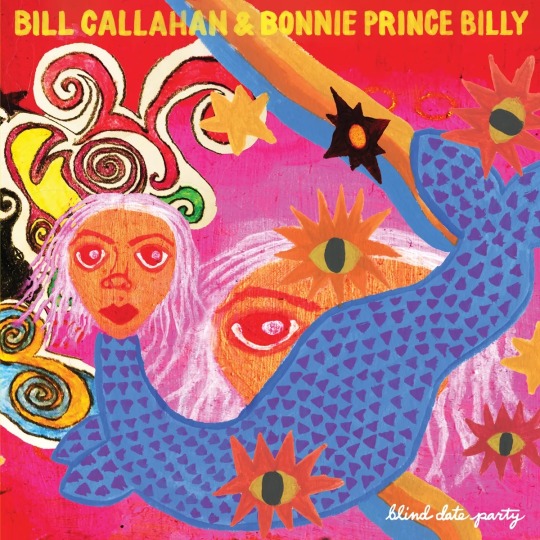
Bill Callahan + Bonnie 'Prince' Billy —
Blind Date Party. 2021 : Drag City.
! acquire the album ★ attach a coffee !
#rock music#folk rock#indie rock#bill callahan#bonnie prince billy#2021#drag city#cover songs#2020s#2020s rock
2 notes
·
View notes
Text
It's time for Beginnings, the podcast where writer and performer Andy Beckerman talks to the comedians, writers, filmmakers and musicians he admires about their earliest creative experiences and the numerous ways in which a creative life can unfold.
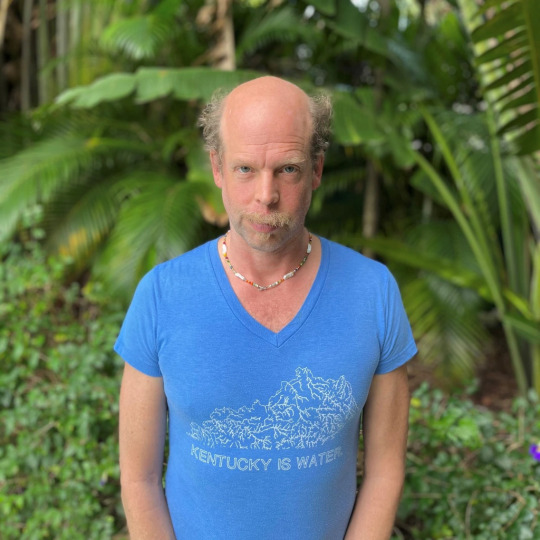
On today's episode, I talk to musician and actor Will Oldham. Originally from Louisville, Kentucky, Will was an actor before becoming a musician, appearing in John Sayles' Matewan as a teenager, as well as in films like Old Joy, Junebug and The Guatemalan Handshake, as well as TV shows like Wonder Showzen. In the early '90s, he began playing music as Palace - or more accurately, as different permutations of the name Palace - but a few years later, adopted the Bonnie "Prince" Billy moniker which he's used ever since his 1999 album I See a Darkness. In the last two plus decades, he's released almost two dozen albums, some collaborations with artists like Bill Callahan and Matt Sweeney, and his latest Keeping Secrets Will Destroy You was just released in August on Drag City, and like everything else Will does, it's fantastic!
I'm on Twitter here and you can get the show with:




Permalink
RSS Feed
Facebook
3 notes
·
View notes
Audio
François J. Bonnet & Stephen O’Malley’s Cylene II
#francois j bonnet#stephen omalley#cylene#drag city#music#ambient#drone#electronic#electroacoustic#dark ambient#drone metal#experimental#bandcamp
7 notes
·
View notes
Text
Jim White — All Hits: Memories (Drag City)

Reasonable enough, perhaps, that drummer Jim White, after four decades in the trade and with a sprawling resumé of indie rock collaborations (not to mention percussion duties in the Dirty Three!), would only now get around to releasing his first solo album. After all, drums by themselves offer a challenging compositional palette, at least in certain idioms. However White, who is deeply respected by his peers, makes some clever moves on All Hits: Memories which clear the way. The first move is to turn toward free jazz, where solo percussion is a bit more familiar than in indie rock. Without doubt he has the chops, too, shifting between groovy phrases and episodes that expand and branch rhizomatically. While it would be difficult to pinpoint his central references here, and while I suspect that difficulty is intentional, it's hard not to hear Milford Graves in the room.
The second move is to play/think not just in rhythm but in sound; each song contains at least one or two rewarding sonic surprises, as White plays with room echo or drags a stick around the ride like a sound bath meditation bowl. These moments give somatic depth and draw the ear in close. It is a chestnut, but headphones add a lot to hearing this album.
The third move is working with brief songs, most of which are essentially vignettes (with just a couple of exceptions). There is a feeling here not unlike, say, J Dilla (and without drawing generic comparisons otherwise), who in his own solo work built breathtakingly complete musical worlds in 30 seconds, only to leave them aside for the next lush thing. White builds worlds similarly, extending the kit in gorgeous ways in rapid fire assemblages of ideas.
Lastly, there is a feeling of manipulation in much of the album's production, an insinuation of treatment in the studio. I have no idea whether that is the case, and I prefer not to check. In the mid-1990s many artists, perhaps fascinated with new studio tools ready to hand in bedrooms and apartments, played with the blurred line between live performance and post-hoc manipulation. (See e.g. the gorgeous, nebulous percussion on Stereolab's Parsec (1997)). There are elements of All Hits: Memories that seem to be looking backwards, perhaps to the aesthetic concerns of that moment, or to earlier moments of sonic synthesis (there are Stranger Things-like retro swells on several tracks). The title itself, of course, feels like a tongue-in-cheek, playfully self-aggrandizing glance backwards. There is a whole lot converging here.
Benjamin Tausig
#jim white#all hits memories#drag city#ben tausig#albumreview#dusted magazine#percussion#dirty three
5 notes
·
View notes
Text
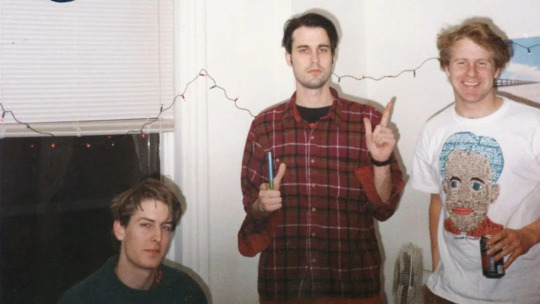
74 notes
·
View notes
Text
1/9/23.
Death were a black power trio from Detroit, Michigan that released a single in 1975. Mos Def said, "These dudes were pre-Sex Pistols, pre-Bad Brains, pre-all that shit, and nobody knows about them."
Death (three Hackney brothers) grew up in a time where The Stooges and MC5 were the sound of early punk. But I agree, listen to "You're A Prisoner" and you'll hear all of the aforementioned bands.
Tryangle initially released the single. Drag City issued this 7 song album in 2009, and then a few labels reissued the 7" in the early 2010s.
While the LP version of this is sold out on the Drag City Bandcamp page, there is a CD and cassette version. And, of course, Discogs has many copies available.
9 notes
·
View notes
Text
The stirring of wind chimes in the morning, helps me find my way back in, from the place where I have been. And Emily, I saw you last night by the river. I dreamed you were skipping little stones across the surface of the water, frowning at the angle where they were lost, and slipped under forever.
Joanna Newsom, Emily
6 notes
·
View notes